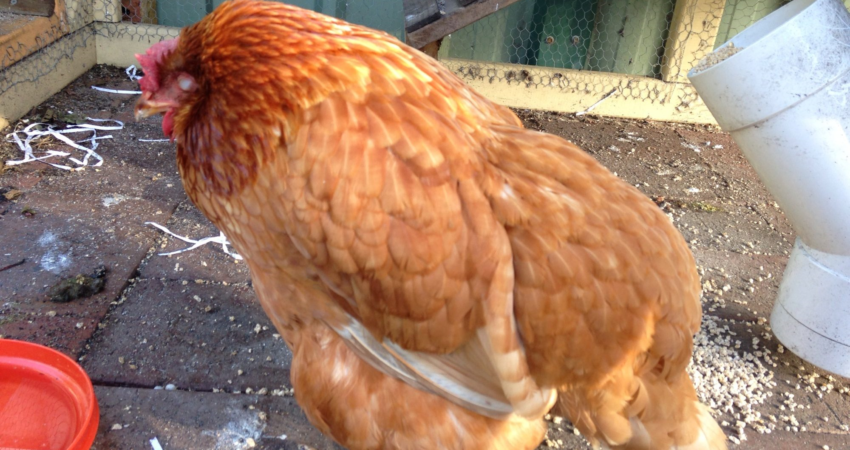

Having a hen that is unable to pass an egg is very serious. Known as egg binding, or being egg bound, this occurs when an egg becomes stuck in the reproductive tracts and the bird cannot expel it on her own. If this condition goes unnoticed or is left untreated, it can result in infection, tissue damage, swelling, bleeding, prolapse of the oviduct, prolapsed uterus, or even death.Potential causes for egg binding include low levels of calcium, Hypocalcaemia Syndrome (low serum calcium levels in the blood), obesity, unusually large or malformed eggs, oviduct infection, retaining eggs due to lack of nesting area, or the hen beginning to lay before her body has fully matured.
Calcium is required to form an egg, and your chicken’s body will even rob itself of the calcium necessary to get the job done, sacrificing bone health in the process. However, if there is not enough calcium present regardless of which the area of the body from which it comes, problems are bound to occur.Signs of a hen that is egg bound include depression, loss of appetite, lack of interest in water, abdominal straining, hard abdomen, standing upright like a penguin, frequent sitting, pale comb and wattles, and passing little to no waste or waste that is wet due the trapped egg causing problems that prevent the normal passage of waste.
Treating a hen that is egg bound is best done by a veterinarian and she should be seen by one quickly. A vet has the capability to locate the egg through exam and/or x-ray. The vet may also be able to administer treatment to help pass the egg, up to and including surgery.
If you do not have access to an avian vet, there are some steps you can take on your own and at your own risk.The first step is to gently feel around for the presence of an egg by applying gentle pressure to the sides of her vent. Should you feel an egg, the best way to aid an egg bound hen is calcium, via liquid given orally with a dropper, electrolytes and vitamins added to water, or even injection.
You can also place the hen in a warm bath with Epsom salt (1/4 cup in a shallow tub of warm water) for about 20 minutes to relax and hydrate her vent to make egg passage easier. Applying a personal lubricant such as KY Jelly to her vent may also make it easier for the egg to pass. After trying these techniques, the hen should be placed in a quiet area and given time to pass the egg. If this does not happen in about an hour or so, the egg may need to be removed manually.
Throughout the process of caring for an egg bound hen, the goal is to successfully get the egg to pass without breakage.
If those efforts fail, you may find yourself faced with no other choice but to break the egg through aspiration with a needle. This is a risky technique that carries with it a lot of danger and should only be attempted by someone professional with a lot of experience; it is not something that you should attempt if you have never done or even seen it done before because a mistake doing this can be fatal to your chicken.
To prevent future egg bindings, calcium should always be available, such as from crushed egg or oyster shells.
Obesity also needs to be avoided, so keeping treats to a minimum and feeding a healthy, balanced diet is essential as is giving your chickens enough room to move about and work their muscles.Birds that are aging or ill are especially vulnerable to egg binding, so keep a close eye on the senior citizens in your flock.
If you have a hen that is seemingly prone to egg binding, she may require shots of Lupron to stop her body from going into breeding mode or it may be necessary to spay her. Not all egg bound hens can be saved, but it is important that you know the steps you can take in order to attain the best outcome possible.
 Contact Jaguza Support
Contact Jaguza Support